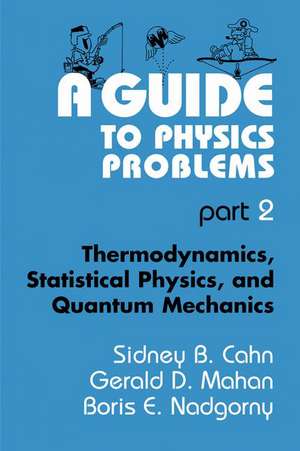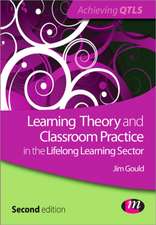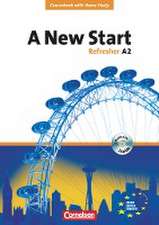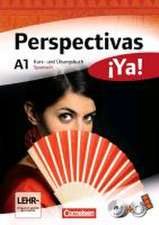A Guide to Physics Problems: Part 2: Thermodynamics, Statistical Physics, and Quantum Mechanics
Autor Sidney B. Cahn Cuvânt înainte de Max Dresden Autor Gerald D. Mahan, Boris E. Nadgornyen Limba Engleză Paperback – 31 aug 1997
Praise for A Guide to Physics Problems: Part 2: Thermodynamics, Statistical Physics, and Quantum Mechanics:
"… A Guide to Physics Problems, Part 2 not only serves an important function, but is a pleasure to read. By selecting problems from different universities and even different scientific cultures, the authors have effectively avoided a one-sided approach to physics. All the problems are good, some are very interesting, some positively intriguing, a few are crazy; but all of them stimulate the reader to think about physics, not merely to train you to pass an exam. I personally received considerable pleasure in working the problems, and I would guess that anyone who wants to be a professional physicist would experience similar enjoyment. … This book will be a great help to students and professors, as well as a source of pleasure and enjoyment." (From Foreword by Max Dresden)
"An excellent resource for graduate studentsin physics and, one expects, also for their teachers." (Daniel Kleppner, Lester Wolfe Professor of Physics Emeritus, MIT)
"A nice selection of problems … Thought-provoking, entertaining, and just plain fun to solve." (Giovanni Vignale, Department of Physics and Astronomy, University of Missouri at Columbia)
"Interesting indeed and enjoyable. The problems are ingenious and their solutions very informative. I would certainly recommend it to all graduate students and physicists in general … Particularly useful for teachers who would like to think about problems to present in their course." (Joel Lebowitz, Rutgers University)
"A very thoroughly assembled, interesting set of problems that covers the key areas of physics addressed by Ph.D. qualifying exams. … Will prove most useful to both faculty and students. Indeed, I plan to use this material as a source of examples and illustrations that will be worked into my lectures." (Douglas Mills, University of California at Irvine)
Preț: 531.91 lei
Preț vechi: 625.78 lei
-15% Nou
Puncte Express: 798
Preț estimativ în valută:
101.79€ • 105.88$ • 84.04£
101.79€ • 105.88$ • 84.04£
Carte tipărită la comandă
Livrare economică 15-29 aprilie
Preluare comenzi: 021 569.72.76
Specificații
ISBN-13: 9780306452918
ISBN-10: 030645291X
Pagini: 354
Ilustrații: XXVI, 354 p.
Dimensiuni: 155 x 235 x 22 mm
Greutate: 0.54 kg
Ediția:1997
Editura: Springer Us
Colecția Springer
Locul publicării:New York, NY, United States
ISBN-10: 030645291X
Pagini: 354
Ilustrații: XXVI, 354 p.
Dimensiuni: 155 x 235 x 22 mm
Greutate: 0.54 kg
Ediția:1997
Editura: Springer Us
Colecția Springer
Locul publicării:New York, NY, United States
Public țintă
ResearchCuprins
Problems.- Thermodynamics and Statistical Physics.- Quantum Mechanics.- Solutions.- Thermodynamics and Statistical Physics.- Quantum Mechanics.
Textul de pe ultima copertă
In order to equip hopeful graduate students with the knowledge necessary to pass the qualifying examination, the authors have assembled and solved standard and original problems from major American universities – Boston University, University of Chicago, University of Colorado at Boulder, Columbia, University of Maryland, University of Michigan, Michigan State, Michigan Tech, MIT, Princeton, Rutgers, Stanford, Stony Brook, University of Tennessee at Knoxville, and the University of Wisconsin at Madison – and Moscow Institute of Physics and Technology. A wide range of material is covered and comparisons are made between similar problems of different schools to provide the student with enough information to feel comfortable and confident at the exam. Guide to Physics Problems is published in two volumes: this book, Part 2, covers Thermodynamics, Statistical Mechanics and Quantum Mechanics; Part 1, covers Mechanics, Relativity and Electrodynamics.
Praise for A Guide to Physics Problems: Part 2: Thermodynamics, Statistical Physics, and Quantum Mechanics:
"… A Guide to Physics Problems, Part 2 not only serves an important function, but is a pleasure to read. By selecting problems from different universities and even different scientific cultures, the authors have effectively avoided a one-sided approach to physics. All the problems are good, some are very interesting, some positively intriguing, a few are crazy; but all of them stimulate the reader to think about physics, not merely to train you to pass an exam. I personally received considerable pleasure in working the problems, and I would guess that anyone who wants to be a professional physicist would experience similar enjoyment. … This book will be a great help to students and professors, as well as a source of pleasure and enjoyment." (From Foreword by Max Dresden)
"An excellent resource for graduate studentsin physics and, one expects, also for their teachers." (Daniel Kleppner, Lester Wolfe Professor of Physics Emeritus, MIT)
"A nice selection of problems … Thought-provoking, entertaining, and just plain fun to solve." (Giovanni Vignale, Department of Physics and Astronomy, University of Missouri at Columbia)
"Interesting indeed and enjoyable. The problems are ingenious and their solutions very informative. I would certainly recommend it to all graduate students and physicists in general … Particularly useful for teachers who would like to think about problems to present in their course." (Joel Lebowitz, Rutgers University)
"A very thoroughly assembled, interesting set of problems that covers the key areas of physics addressed by Ph.D. qualifying exams. … Will prove most useful to both faculty and students. Indeed, I plan to use this material as a source of examples and illustrations that will be worked into my lectures." (Douglas Mills, University of California at Irvine)
Praise for A Guide to Physics Problems: Part 2: Thermodynamics, Statistical Physics, and Quantum Mechanics:
"… A Guide to Physics Problems, Part 2 not only serves an important function, but is a pleasure to read. By selecting problems from different universities and even different scientific cultures, the authors have effectively avoided a one-sided approach to physics. All the problems are good, some are very interesting, some positively intriguing, a few are crazy; but all of them stimulate the reader to think about physics, not merely to train you to pass an exam. I personally received considerable pleasure in working the problems, and I would guess that anyone who wants to be a professional physicist would experience similar enjoyment. … This book will be a great help to students and professors, as well as a source of pleasure and enjoyment." (From Foreword by Max Dresden)
"An excellent resource for graduate studentsin physics and, one expects, also for their teachers." (Daniel Kleppner, Lester Wolfe Professor of Physics Emeritus, MIT)
"A nice selection of problems … Thought-provoking, entertaining, and just plain fun to solve." (Giovanni Vignale, Department of Physics and Astronomy, University of Missouri at Columbia)
"Interesting indeed and enjoyable. The problems are ingenious and their solutions very informative. I would certainly recommend it to all graduate students and physicists in general … Particularly useful for teachers who would like to think about problems to present in their course." (Joel Lebowitz, Rutgers University)
"A very thoroughly assembled, interesting set of problems that covers the key areas of physics addressed by Ph.D. qualifying exams. … Will prove most useful to both faculty and students. Indeed, I plan to use this material as a source of examples and illustrations that will be worked into my lectures." (Douglas Mills, University of California at Irvine)





